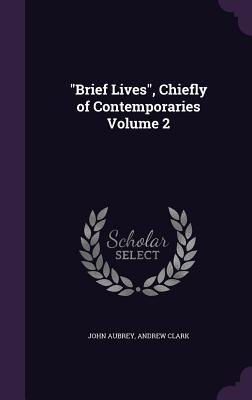It was helpful to find this version of it so I could follow along while I listened to the audiobook on Librivox.
https://www.gutenberg.org/files/47791/47791-0.txt
Aubrey is so funny. He throws in little quips about them being fat or poked-mark, etc. It was an interesting book.
There are very few women in these illustrious people of the 1500-1600s, but here is one poem about Dame Dorothy Selby that I found interesting (spelling as in the book):
She was a DorcasWhose curious needle turn'd the abused stageOf this lewd world into a golden age:Whose pen of steele, and silken inke, enroll'dThe acts of Jona in records of gold;Whose art disclos'd that plott, which had it taken,Rome had triumph't and Britaine's walls had shaken.Shee wasIn heart a Lydia, and in tongue a Hanna,In zeale a Ruth, in wedlock a Susanna.Prudently simple, providently wary,To the world a Martha, and to heaven a Mary.
I was so looking forward to hearing what he said about William Shakespeare, but maybe he wasn't as famous back then as he is now because they entry was much shorter than other "illustrious" men of the period!
Here is an excerpt (again, exact spelling)
I have heard Sir William Davenant and Mr. Thomas Shadwell (who is counted the best comoedian we have now) say that he had a most prodigious witt, and did admire his naturall parts beyond all other dramaticall writers. He was wont to say (B. Johnson's Underwoods) that he 'never blotted out a line in his life'; sayd Ben: Johnson, 'I wish he had blotted-out a thousand.'
His comoedies will remaine witt as long as the English tongue is understood, for that he handles mores hominum. Now our present writers reflect so much upon particular persons and coxcombeities, that twenty yeares hence they will not be understood.
Though, as Ben: Johnson sayes of him, that he had but little Latine and lesse Greek, he understood Latine pretty well, for he had been in his younger yeares a schoolmaster in the countrey.—from Mr. ... Beeston[964].
_Avebury._ Between pages 1 and 2[1334] insert the scheme of
Avebury.--... miles westwards from Marleborough (not far from
Bristowe-roade) is a village called Avebury which stands within one
of the most remarkeable monuments of its kind in England. It seemes
strange to me that so little notice hath been taken of it by writers.
Mr. Camden only touches on it and no more.--MS. Aubr 9, fol. 50ᵛ.



No comments:
Post a Comment